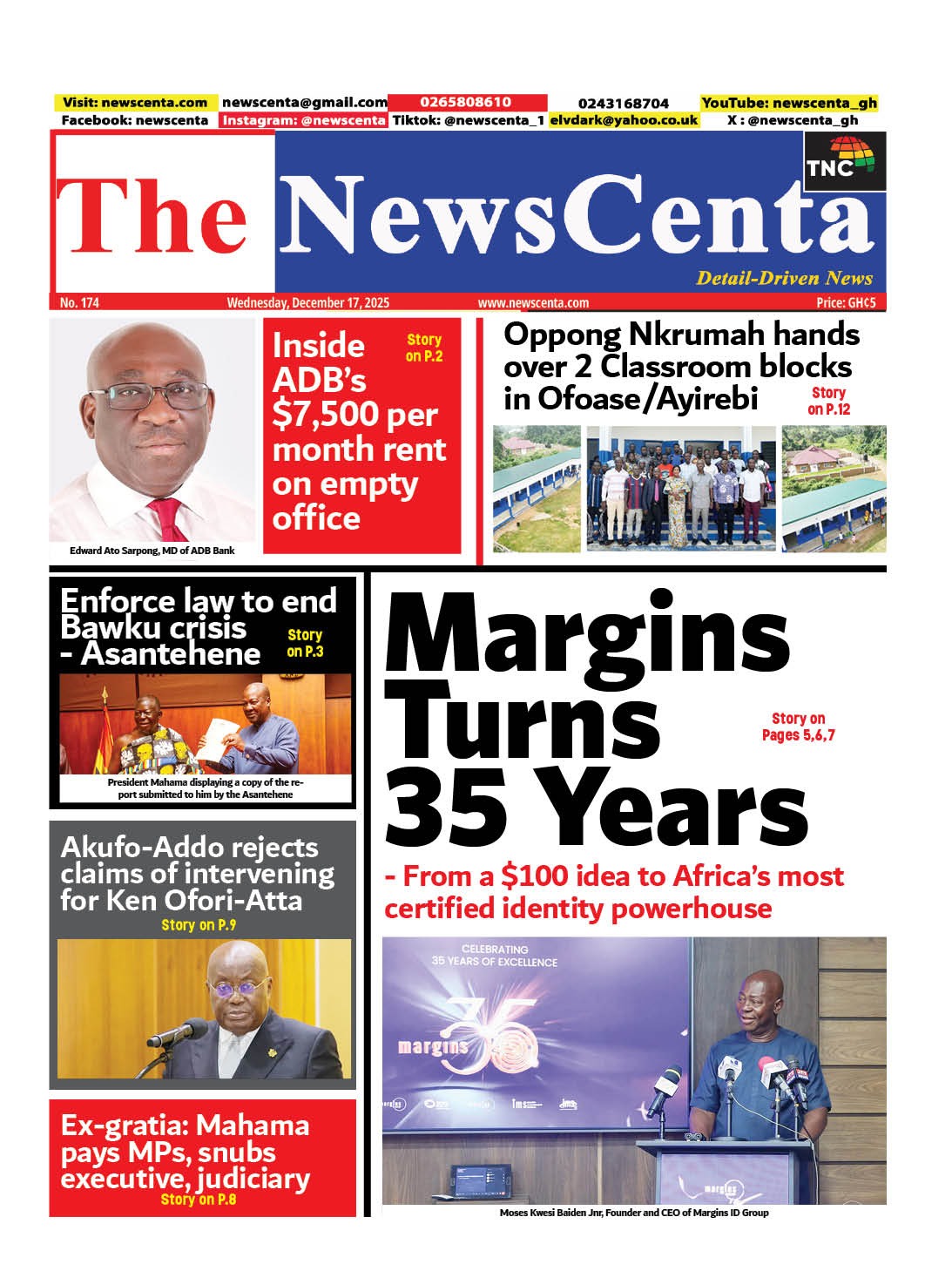Reforming Ghana’s holiday structure is not about erasing tradition but honouring it more effectively while aligning the scheduling and celebration with modern economic and social needs.
With a carefully designed legal amendment and a broader stakeholder consultation, Ghana can modernize its public holiday system for both efficiency and national unity.
In Ghana, the laws governing public holidays, including long holidays are set out in the Public Holidays Act, 2001, Act 601.
The Government of Ghana has recently enacted a groundbreaking holidays policy, shifting national holidays that fall within the working week (Tuesday, Wednesday, or Thursday) to either the preceding Friday or the following Monday.
This strategic move, which also includes shifting weekend holidays to Monday, aims to minimize disruption to the working week and, crucially, to create extended long weekends.
Nations globally are beginning to reduce the number of working days generally to ease pressure on the labour force for better work output.
Countries like UAE (Sharjah) and Belgium have successfully implemented a 4 day working week with Scotland, Japan, Canada, among others at the pilot stage.
This is reduce employee stress, better work – life balance.
For a developing country, long weekends can be seen as a progressive policy that will have multifaceted implications for Ghana’s burgeoning tourism and hospitality industry.
The traditional placement of national holidays often leads to distorted working weeks, impacting productivity and operational efficiency.
By moving holidays to weekends, the government seeks to achieve several objectives:
A continuous five-day working week, punctuated by predictable long weekends, can lead to improved focus and efficiency. Businesses can plan their operations with greater certainty, minimizing the stop-and-start cycles often associated with midweek holidays.
When a holiday falls mid-week, some employees are often tempted to take an extra day off before or after, extending their break unofficially.
Shifting the holiday formally encourages a complete break, potentially reducing unauthorized absenteeism.
Long weekends provide a significant opportunity for rest, recreation, and family time.
This can lead to improved employee well-being, reduced stress, and ultimately, higher morale and job satisfaction.
Funerals in Ghana have over the years grown from a solemn farewell ceremony to colourful display of culture and tradition.
A long weekend will give families adequate time for preparation and serve as a well packaged tourist attraction for non Ghanaians.
Beyond these productivity benefits, a central tenet of this policy is its explicit intention to stimulate the tourism and hospitality sector, recognizing its immense potential for economic growth and job creation.
Impact on the tourism and hospitality industry in Ghana
Ghana’s tourism sector has been identified as a key economic driver, generating foreign exchange earnings, creating jobs, and stimulating other sectors of the economy.
In 2024, Ghana welcomed over 1.28million international visitors, a 12% increase from the previous year. 22.1% of these victors came for holidays/vacations.
The new holiday policy if implemented will amplify these positive trends significantly.
The most immediate and profound impact of longer weekends will be on domestic tourism.
Ghanaians will have more consistent and predictable opportunities to explore their own country. Ghana is blessed with great tourism sites dotted all over the country, however, to fully enjoy these facilities in the context of domestic tourism, one may need at least 4 days, factoring in travel time.
The normal weekend (Friday – Sunday) makes it unattractive for long travels.
With three or four-day breaks becoming the norm for national holidays, more Ghanaians will be inclined to plan short getaways frequently.
This could lead to a surge in visits to popular tourist destinations. My visit to tourist sites has proven that the more the number of days to stay at such destinations the better the experience.
To enjoy the Kakum National Park for instance, I had to stay for 4 days to have a better feel of the canopy walkway, the tree house, the night hike, the early morning bird view among others.
My visit to Afadjato South in the Volta region could have been more fun if it was a long stay.
From climbing the Afadja Mountain to cooling off in the beautiful Tagbo Falls, more sites like the Wli Falls could have been visited but for my limited days.
Visiting the Mole National Park required 2 days of travel time and at least 2 days stay to accord me time with nature.
Extended stays translate to increased expenditure on accommodation, food, transportation, local crafts, and recreational activities, directly benefiting hotels, restaurants, tour operators, local vendors, and transport providers.
As popular spots become busier, domestic tourists might be encouraged to explore lesser-known regions, distributing tourism benefits more widely across the country.
Enhanced Attractiveness for Regional and International Tourists;
While the primary focus is on domestic tourism, the policy can also have positive spill over effects for regional and even international visitors.
Short stay packages could be developed to attract such tourists, particularly those from neighboring West African countries who may align their visits with Ghana’s long weekends, maximizing their stay and experience.
We are renowned for our vibrant traditional festivals.
The Akwasidae, Homowo, Damba, Oguaa Fetu Afahye, Hogbetsotso among others have grown to become cultural events that draw patrons from far and near regardless of tribe, a great platform to market Ghana to the world.
If these holidays coincide with scheduled festivals, the extended weekends will allow more people to attend and participate, further boosting local economies.
For instance, the Kwahu Easter festivities already attract over a million visitors, and aligning a national holiday with this could significantly amplify its economic impact.
The anticipated increase in tourist traffic will necessitate and encourage further investment in the tourism infrastructure.
From accommodation expansion, that is the demand for hotels, guesthouses, AirBnBs to improved transportation like better road networks, more efficient public transport, and potentially expanded air travel options within the country, to development of ancillary services including tour guiding, entertainment, recreational facilities, and specialized tourism products, special attention will have to be given these areas to take better advantage of this policy.
Tourism is a labor intensive industry. The growth spurred by the long weekend policy will directly contribute to job creation across various skill levels especially with the roll out of government’s 24 hour economy policy.
From direct employment like Jobs in hotels, restaurants, tour operations, transport, and attractions to indirect employment like opportunities in supply chains (food and beverage suppliers, handicraft producers, construction workers), this will be a great tool to deal with the high numbers of unemployment Ghanaian youth is grappling with.
While the benefits are substantial, it is important to also note that, some potential challenges need to be addressed with mitigation strategies set in place for the policy to achieve its full potential. Challenges like these will require attention;
Strain on infrastructure
A sudden surge in visitors to popular sites could strain existing infrastructure, leading to overcrowding, traffic congestion, and pressure on essential services.
It is therefore key to ensure well-structured maintenance measures are instituted and implemented to maximize the full benefits
Service quality
Currently, the quality of service in our tourism industry is nothing to write home about.
From customer service, professionalism in the discharge of duty to access to information, deliberate effort must be made to enhance the overall experience in tourism.
The state of facilities leaves much to be desired.
The hospitality sector must be better prepared to handle increased demand while maintaining high service standards. Investment in training for tourism professionals, promotion of service excellence, and robust regulatory frameworks must be regularly embarked on for improved quality of service.
Environmental impact
Increased tourist activity can lead to environmental degradation if not properly managed.
It is therefore necessary to implement eco-tourism initiatives, waste management programs, and awareness campaigns for both tourists and locals to preserve the environment.
Conclusion
Ghana’s new holiday policy is a strategic and forward-thinking initiative that holds immense promise for the nation’s tourism and hospitality industry.
By creating predictable and extended long weekends, the government is not only aiming to enhance productivity but also to unlock the significant economic potential of domestic and, indirectly, international tourism.
The anticipated surge in travel, spending, and investment will translate into tangible benefits, including job creation, poverty alleviation, and the preservation of Ghana’s rich cultural and natural heritage.
However, realizing these benefits will require proactive planning, investment in infrastructure, a focus on service quality, and a commitment to sustainable tourism practices.
If managed effectively, this policy could mark a new era of growth and prosperity for Ghana’s vibrant tourism sector.












